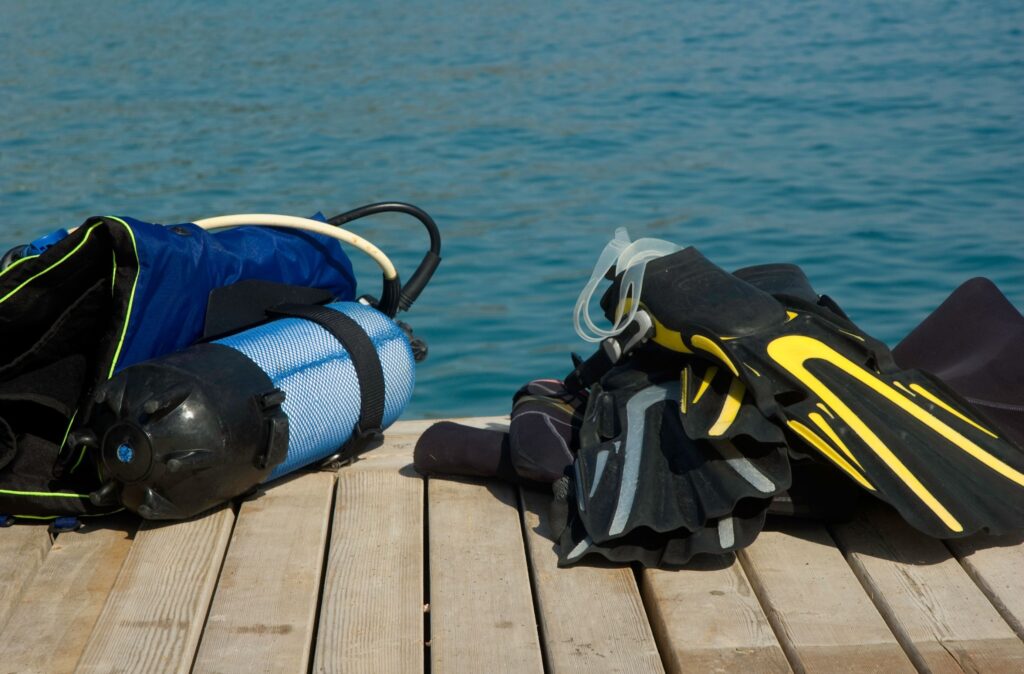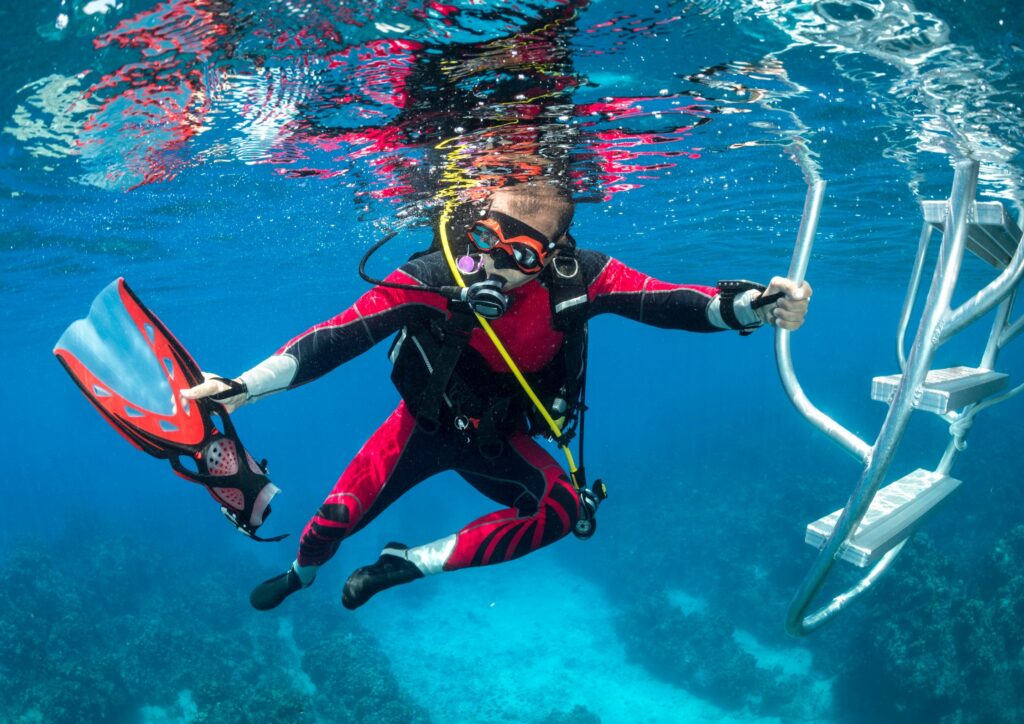Diving in Bali offers an enchanting underwater adventure, but ensuring your diving safety is crucial to fully enjoy the experience. Whether you are a seasoned diver or a novice eager to explore the vibrant reefs and marine life, understanding scuba diving safety principles is essential. In this guide, we will delve into essential tips and best practices that will help you navigate the underwater world of Bali safely and confidently. With the right preparation and knowledge in diving safety, your diving journey will not only be exhilarating but also secure and fulfilling.
Understanding the Basics of Scuba Diving Safety
Understanding the basics of scuba diving safety is crucial for both beginners and experienced divers alike. First and foremost, always ensure you are familiar with your equipment before descending into the water. This includes checking your tank pressure, testing your BCD, and ensuring your regulator is functioning properly. It’s also vital to dive within your certification limits and experience level. Communicating effectively with your dive buddy and establishing hand signals can significantly enhance safety underwater. Additionally, always monitor your air supply and avoid shallow water blackout by ascending slowly. These practices not only enhance your diving experience in Bali but also promote a safer environment for all underwater adventurers.
Essential Pre-Dive Preparations
Before plunging into the stunning waters of Bali, essential pre-dive preparations are crucial for a successful and safe dive. Start by checking your diving gear meticulously, ensuring that everything is in optimal condition. Review your dive plan, including the dive site, depths, and any potential hazards. Communicating with your dive buddy about emergency procedures and signals is also vital. Ensure that you are well-rested and hydrated before your dive, as fatigue can impair your abilities underwater. Lastly, familiarize yourself with the local marine environment, including currents and marine life. Prior preparation will set the tone for a thrilling and secure underwater adventure.
Key Safety Equipment for Bali Diving

When planning a diving adventure in Bali, having the right safety equipment is crucial to ensure a safe experience. First and foremost, a well-fitted dive mask and snorkel are essential to help you explore the vibrant underwater world comfortably. Additionally, a reliable buoyancy control device (BCD) helps you maintain your position in the water, making it easier to ascend and descend safely. A dive computer is another vital tool, providing real-time information about depth and time to help you avoid dangerous situations. Lastly, don’t forget a surface marker buoy (SMB) to signal your presence for safety during ascents. With the right equipment, divers can confidently explore the stunning dive sites around Bali while prioritizing their safety.
Best Practices for Safe Dive Execution
When embarking on a scuba diving adventure in Bali, adhering to best practices for safe dive execution is paramount. Always conduct thorough pre-dive safety checks with your diving buddy, including verifying equipment functionality and reviewing dive plans. Stay aware of your surroundings and understand local conditions, such as currents and visibility, which can impact your dive experience. It’s crucial to maintain proper buoyancy control and equalize your ears frequently to prevent injury. Additionally, always dive within your training limits and stay aware of your air supply, ascending slowly and making safety stops as needed. Employing these diving safety practices ensures a safe and enjoyable dive.
How to Handle Underwater Emergencies
Handling underwater emergencies requires preparation and composure. First and foremost, always ensure you have a buddy system in place; this not only enhances safety but also provides immediate assistance in case of trouble. Familiarize yourself with the common issues that can arise, such as equipment failure, getting lost, or experiencing an injury. Breath control is crucial—if you find yourself in a panic situation, focus on slow, deep breaths to help stabilize your emotions. Practicing emergency scenarios during training is essential. Lastly, always have an exit strategy to ascend safely and calmly to the surface, keeping a close eye on your buoyancy.
Guidelines for Post-Dive Safety
Post-diving safety is crucial for ensuring a full recovery after your Bali diving adventures. Firstly, it’s essential to give your body adequate time to acclimate after a dive. Wait at least 24 hours before flying to prevent decompression sickness, which can occur when changes in pressure affect your body. Hydration is key; drink plenty of water to flush out any nitrogen your body may still be processing. Additionally, avoid strenuous activities immediately after diving to allow your muscles to recover fully. Always debrief with your diving team to discuss any issues you faced during the dive, as sharing experiences can help enhance everyone’s diving safety knowledge.
Local Diving Regulations and Environmental Considerations
When embarking on a diving adventure in Bali, it’s crucial to be aware of local diving regulations and environmental considerations. The Indonesian government has established specific guidelines to protect marine life and ecosystems. Divers are encouraged to respect these rules, which may include designated diving zones and restrictions on touching or collecting marine organisms.
Additionally, it is vital to follow sustainable diving practices, such as minimizing your environmental footprint and using eco-friendly products. This not only ensures the preservation of Bali’s extraordinary underwater habitats but also enhances the overall diving experience. Being mindful of local customs and environmental issues fosters a deeper connection to the ocean and promotes responsible diving, ensuring these amazing dive locations remain pristine for future adventurers.
Top Dive Sites in Bali for Safe Adventures
Bali is renowned for its stunning underwater landscapes and diverse marine life, making it a top destination for scuba diving enthusiasts. Some of the best dive sites for safe adventures include Amed, where you can explore vibrant coral gardens, and Tulamben, famous for the USAT Liberty shipwreck. Both locations offer relatively calm waters and suitable conditions for divers of all skill levels. Nusa Penida is another highlight, known for its Manta Point and the thrilling possibility of encountering majestic manta rays. When diving in these areas, always dive with a certified instructor who prioritizes scuba diving safety and can guide you on safe dive practices.
Dive Safely into Your Bali Adventure
As you prepare for your Bali Diving, it’s crucial to prioritize safety above all else. By following the essential tips and best practices outlined in this blog, you’ll not only ensure your well-being but also enhance your underwater experience. Remember to always dive with a buddy, maintain open communication, and stay aware of your surroundings. With careful planning and a mindful approach, you can fully immerse yourself in the vibrant marine life Bali has to offer, creating unforgettable memories while diving safely.
Furthermore in diving safety, keep in mind that proper training and certification are fundamental to enjoying scuba diving safely. Engage with reputable diving schools and guides who emphasize safety and responsible diving practices. By adopting these measures, you will not only protect yourself but also contribute to the conservation of Bali’s delicate underwater ecosystems. So gear up, stay alert, and dive into the beauty of Bali with confidence, knowing you have the skills and knowledge to enjoy a thrilling underwater adventure safely.

I love how detailed this guide is! It’s perfect for a beginner like me who wants to ensure a safe and enjoyable diving experience in Bali. I’ll definitely be bookmarking this page
Hi Aisha, thank you for taking the time to read our blog and share your thoughts! We’re thrilled that you found our guide helpful and informative. As a beginner, it’s essential to prioritize diving safety and have a solid understanding of best practices before embarking on an underwater adventure in Bali. Our team at Gill Divers is committed to providing exceptional customer service and ensuring that all our divers have a fantastic experience. If you have any further questions or concerns, please don’t hesitate to reach out to us. We’re always here to help. Contact us via phone at +65 6734 9373 or email at [email protected].
I’m so impressed with the level of attention to detail in this post! As someone who’s been diving for a while, it’s great to see best practices and safety tips being shared. Can’t wait to apply some of these tips on my next dive
Hi Kavita! Thank you for taking the time to read and appreciate our post on scuba diving safety in Bali. We’re thrilled to hear that you found it informative and relevant to your own diving experiences. As a seasoned diver, we’re sure you already prioritize safety when exploring the underwater world. However, we want to emphasize the importance of sharing knowledge and best practices with fellow divers, so everyone can enjoy this incredible hobby safely. If you have any questions or need further guidance on any of the tips mentioned in our post, please don’t hesitate to reach out to us at [email protected] or call us at +65 6734 9373. We’re here to help and look forward to hearing about your next dive adventure!
This guide is a must-read for anyone planning a diving trip in Bali! The emphasis on safety and sustainability is music to my ears. Can’t wait to share this with my fellow divers
Thank you, Siti Nuraisyah! We’re thrilled to hear that our guide resonates with you. Safety and sustainability are indeed crucial aspects of responsible diving practices. It’s fantastic that you’re enthusiastic about sharing this information with your fellow divers. At Gill Divers, we prioritize both safety and environmental protection in all our diving activities. If you have any questions or need further guidance on safe diving practices, please don’t hesitate to reach out to us at +65 6734 9373 or [email protected]. We’re always here to help.